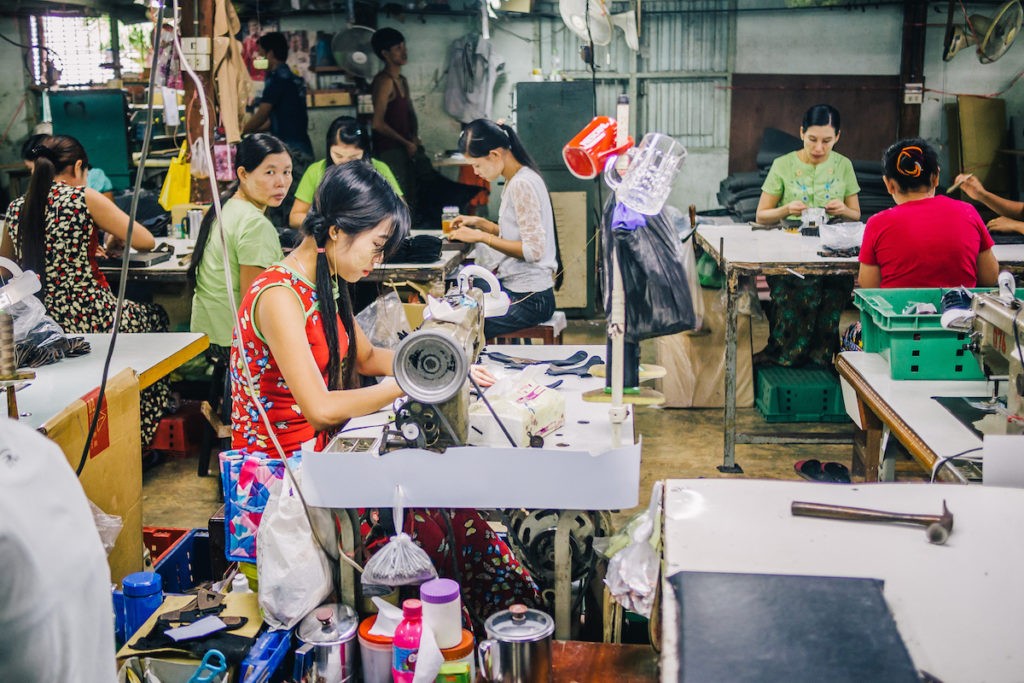Htoo Gay War quit her job as a domestic worker in January because her employer refused to allow her to take one day off each week — just before Thailand reported its first case of the novel coronavirus pandemic.
Three months later, the pregnant 30-year-old from Myanmar has been unable to find a new job as Thailand has declared a state of emergency, shutting malls, schools and bars to curb the spread of the virus, which has infected some 3,000 people.
“I want to go home to be with my parents, because at least they can take care of me while I’m out of work and don’t have any money,” she said from the central province of Pathum Thani.
“But I can’t go back now that the borders are closed,” she said, adding that her family are scraping by on her husband’s salary of 8,000 baht ($247) per month.
Thailand has about 2.8 million registered migrant workers mainly from Myanmar, Cambodia and Laos, government figures show. But the United Nations estimates that 2 million more work informally across the country.
At least half a million migrant workers in Thailand have been left unemployed as a result of the coronavirus crisis, estimates the Migrant Working Group (MWG), a network of non-governmental organizations promoting migrant rights.
“These workers will find it difficult to seek new jobs as many venues are still closed, and they also can’t go back home and have very little access to government aid,” said Adisorn Kerdmongkol, a coordinator at MWG.
Suchat Pornchaiwiseskul, director-general of the Department of Employment, said its policy was to help unemployed migrants find new jobs within 30 days.
“Thailand’s labor law protects both Thai and foreign workers,” Suchat said.
Debt
Thailand has introduced a raft of measures to help workers affected by the coronavirus, including financial aid for informal Thai workers and for Thai and foreign workers registered under the social security system.
The Thomson Reuters Foundation spoke to seven migrant workers from Cambodia and Myanmar who said they did not receive government assistance because they were not formally registered.

One female worker who earned 120 baht a day at a beauty salon before it closed, said she owed money to a grocery store because she could not afford to pay for basic goods.
“I’ve been looking for a new job, but no one has been willing to accept me,” said the worker, who spoke on the condition of anonymity because Thai law does not allow migrants to work in beauty salons.
About 60,000 migrant workers scrambled to leave Thailand in March before the land border was closed, as the shutting of businesses left them without an income.
Most migrant workers are not members of Thailand’s social security scheme, said Jarrett Basedow, regional director of Issara Institute, a labor rights and anti-trafficking group.
“We have not yet talked to a migrant worker who has accessed this assistance,” he said, adding that many work illegally, have not received a social security card or their employers have not paid the necessary contributions.
Unemployed people must contribute to social security for at least six months before they can receive benefits.
Basedow said many employers were laying off workers, often with no legal severance pay, by pressuring workers to sign resignation letters or not renewing their contracts.
“Many of these workers are worried about meeting their needs until they are able to return home, as they have no employment and high debt,” he said.
Pasuta Chuenkhachorn, a lawyer with the Human Rights and Development Foundation, which provides legal aid to migrant workers and trafficking victims, said the government’s financial aid measures discriminated against migrants.
“In times of crisis like this, the Thai government only takes care of Thai people,” she said.
One glass factory worker from Myanmar said he and dozens of other workers were laid off on March 1, as orders had fallen.
He was unable to look for a new job because his passport and work permit were still with the agency that recruited him.
“There’s no point in staying here anymore,” he said by phone from Thailand’s central Samut Prakan province.
“Once the borders are open, I’ll go home. It’s hard to find work here and I don’t have my personal documents.”
Reporting by Nanchanok Wongsamuth for the Thomson Reuters Foundation, the charitable arm of Thomson Reuters, that covers the lives of people around the world who struggle to live freely or fairly.






